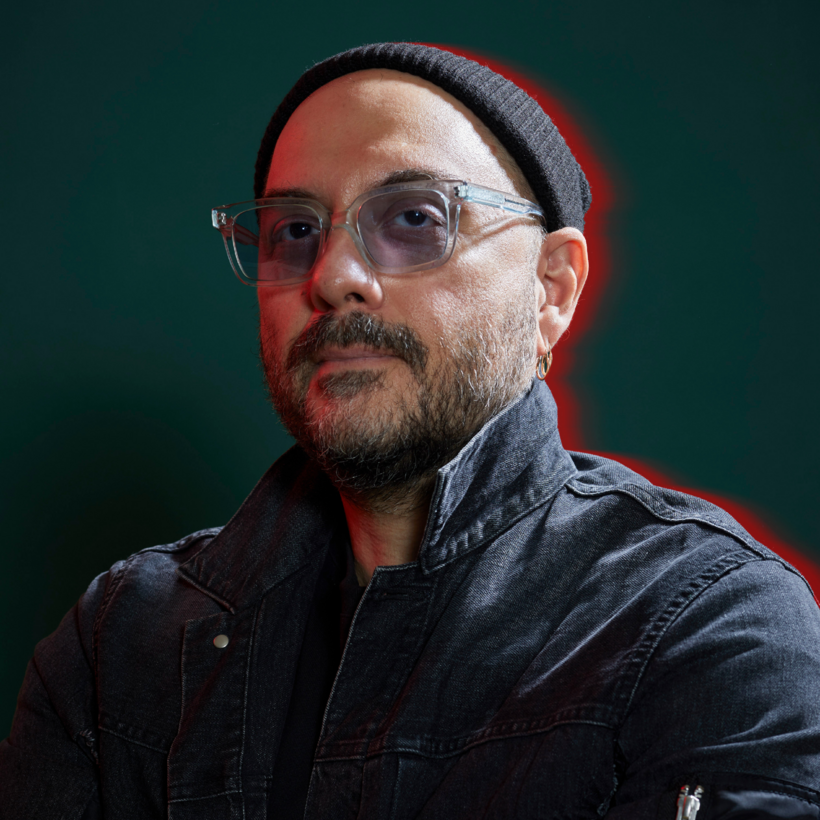There is no stopping Kirill Serebrennikov. This year alone, the internationally acclaimed Russian stage-and-film director will have premiered a new feature in Cannes, fundraised for another movie—this one starring Ben Whishaw as a punk poet—and directed operas in Amsterdam and Paris, not to mention a play in Hamburg. Serebrennikov’s blazing creativity persists despite a Russian government that has treated him like he has a target on his back, subjecting him to years of courtroom drama and detainment.
When the 52-year-old filmmaker arrived this week in Cannes to present Tchaikovsky’s Wife in the prestigious competition, following an interminable legal saga, he attended “as a free man” (in the courtly words of Le Monde). And yet he did so with the recent news of another slap in the face: the Bolshoi Theatre was canceling his ballet, Nureyev. Call it “The Persecution of the Artist Serebrennikov.”
The troubles began in earnest five years ago, when the Russian government accused Serebrennikov of embezzling large sums from a state art project, Platform, where he had been artistic director years earlier. (Among the trumped-up accusations was that a production of A Midsummer Night’s Dream had not been staged; the audiences that attended would beg to differ.)

There were raids on his apartment and the offices of Gogol Center, an inter-disciplinary organization that Serebrennikov had built out of the Moscow Gogol Drama Theater. Then came the coup de grâce: Serebrennikov was detained, officially charged in court, and placed under house arrest.
The confinement lasted until April of 2019, but even then he wasn’t allowed to leave Moscow. The restriction on travel reared its head again later as the trial wended its way through Russia’s seemingly arbitrary court system and culminated in a three-year sentence in June of 2020. (The sentence was eventually suspended.)
Such byzantine punishments are par for the course for a government that shows its critics no mercy. And Serebrennikov has not been shy with his criticism, dating back to the “annexation” of Crimea in 2014. He’s also spoken out against election fraud, anti-L.G.B.T.Q. persecution, and other issues. It probably doesn’t help that he’s equated residing in Russia to living in a kind of “slavery,” owing to the lack of respect for basic freedoms.
In addition to these vocal political stances, he’s also ruffled conservative feathers with stage productions that took unconventional approaches (onstage nudity, explicit language) to Russian classics. But Serebrennikov enjoys the respect of colleagues in stage and film—many of whom, such as Cate Blanchett and Elfriede Jelinek, signed a petition in support of his release.
At Cannes, he’s a cause célèbre. When Serebrennikov was unable to attend the premiere of his film Leto in 2018, festival director Thierry Frémaux introduced the film while holding a large sign bearing Serebrennikov’s name. The artist was again prevented from traveling in 2021, but that didn’t stop Frémaux from showcasing his film Petrov’s Flu, a phantasmagoric tale of a sickly comic-book artist, spanning multiple periods of Russian and Soviet history and at one point featuring a Russian rapper playing a singing corpse. Serebrennikov wrote all that while under house arrest—thereby demonstrating the danger of forcing an ingenious mind to sit still in a room.

This week at Cannes, Serebrennikov presented Tchaikovsky’s Wife—a feverish story of marital turmoil that takes for granted the Swan Lake composer’s homosexuality. Russian authorities have long sought to censor the cultural icon’s personal life; Serebrennikov pulled out of an earlier attempt to make the film when Russian funders said they wanted “a straight Tchaikovsky.” Frémaux invited Tchaikovsky’s Wife even as official Russian delegations were barred over the war, giving Serebrennikov the rare honor of consecutive-year appearances at Cannes.
His attendance comes after a successful petition to travel in the spring, and the ordeal has definitely not silenced him. At the film’s packed premiere in the sacral Grand Lumière theater, Serebrennikov proclaimed “No to war!” and thanked the audience for their support in challenging times. He also spoke out about the dangers of excluding Russian artists and funders, defending one target of bans and billion-dollar asset freezes, Roman Abramovich, as a major patron of the arts and film especially.
Speaking recently to the French press, he’s made the sort of statements that the Kremlin despises: that the invasion of Ukraine is indeed a war (not a “special military operation”), and that it was instigated by Russia. (Serebrennikov himself was born in Rostov-on-Don, near the border with Ukraine, to a Ukrainian mother.) Russia might find new ways of inflicting pressure, but Serebrennikov views his country with clear eyes: “Russian culture is about the fragility of life,” he has said. “It’s about people who are being oppressed.”
Serebrennikov keeps demonstrating resilience. Case in point is the Whishaw film about the literary rebel Eduard Limonov. The director was in the midst of shooting the film, which tells Limonov’s gnarly story—raised in Kharkiv, he became a punk poet, a butler, and a writer in the U.S., returning to Russia after the fall of Communism to found the National Bolshevik Party and ultimately getting jailed by Putin—when Russia invaded Ukraine. Serebrennikov, now based in Berlin, has shot half of the film so far, and he’s intent on completing the remainder in the summer.
Perhaps something about Limonov’s never-say-die trajectory strikes a chord in Serebrennikov, who once directed an opera in Zurich while in detainment by sending instructions via USB drives. Maybe he’ll leave Russia for good someday—”Never say never,” he said in a recent interview. Wherever he lands, the world will doubtlessly see more from the unfettered mind of Kirill Serebrennikov.
Nicolas Rapold is a New York–based writer and the former editor of Film Comment magazine
